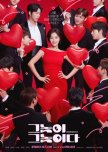
To All The Guys Who Loved Me
64 personnes ont trouvé cette critique utile
Cette critique peut contenir des spoilers
I can’t believe it...
In general, I don’t write reviews. But after finishing this show I’m so angry. I need to spit it out.Positive Parts.
1. The casting is pretty good. I liked all actors and their chemistry. Her parents were the funniest part of the show. Great job!
2. I find the idea with the past life’s intriguing and it offered room for much development. I enjoyed watching all eras. After understanding the whole situation it was even better. Best part of the show for me!
3. The CEO was a great character and offered so much.
ULTRA SPOILER AHEAD
Negative Things.
1. I’m really frustrated about the character writing of the show. It’s my first time experiencing dislikeable leads. As I mentioned was the CEO (male lead) a great person. He’s the only one I liked the whole time. The female lead was terribly written. Sometimes she appeared strong and confident, but when it mattered she was the most passive persons I’ve ever seen in a show. All talk. After reaching the second half of the drama I even hoped for the ml that he won’t end up with her. I really felt sorry for him that he liked such a selfish person. The second male lead is handsome without a doubt. In general, we get the perfect SL that ends up alone because he’s so nice. This one fulfilled most of this till the second half. After 8 eps he developed into a clingy and selfish character himself. No empathy for others, secretive and only interested in the fl without using his brain. I skip the second female lead. She was insecure, but okay. But her mother was the most pathetic character I’ve seen in a while. Introduced as strong career woman did she end in a ridiculous revenge story for her broken heart 30 years ago. I know it’s a fantasy show, but that was too ridiculous. If I were her daughter I would’ve send her to a mental hospital for a check up.
2. After knowing the whole picture I can’t help myself but feeling frustrated with the relationship of the leads. In fact, the show is a story about a man that is willing to give everything for his love and to repay his guilt. (Unnecessary in my opinion and I really don’t get why he’s always the guilty one. After knowing the reasons for everything, he should be embraced with open arms.) And the female lead! Honestly? I had several moments where I wanted to punch her into the face. While he’s doing everything for her, she’s doing literally nothing for him. Not one tiny thing! First, she lets him compete with the SL because she’s too stupid to say the men that she s not interested. Then she’s head over heels for him and can’t even hear him out after their first fight. But the most annoying thing is that she didn’t even react after knowing the truth. Her conversation was pretty lame and it was not relatable for me that she was still suffering from her trauma even after getting to know the truth. No! It got even worse! In the end she wants him to give up his only dream to stay by her side while she can live her own. Let me summarize! He’s doing everything for he. She does nothing for him. And the Happy End is that he gives up his dream for her. Honestly, he deserves a lot more than her.
3. The moral of the story. During the last minutes of the show I was so annoyed that I want it to end right now. Little did I know that another annoying part was waiting. They end the show with the moral that you don’t need a marriage certificate to become happy with your loved one. Yes! That’s true and I agree. But the perfect closure would’ve been when she would have married him and both would’ve made sacrifices and start new. It’s so sad that such an important moral was undermined from annoying written characters. If they intended to do that from the start, they should’ve written the fl nicer or at least a balanced relationship to make it believable.
4. SUMMARY I watched 16 eps about a relationship which was unhealthy to begin with. He does everything and she’s just talk. In my opinion, a happy relationship is about that WE and not just YOU. But the way they showed it makes it okay for someone to do nothing. Unsatisfying On a high level!
5. Another point to rant: the kisses. The make Lead gave everything to show passion. A great praise from me! The female lead was frozen that it was even embarrassing to watch. She didn’t deliver the classical fish kisses, but did nothing while he kissed her. Especially in close camera shots it’s embarrassing to watch. In those moments I even felt sorry for the actor!
ULTRA SPOILER END
Don’t get me wrong! I really like the cast and also the actress, but the way the characters worked wasn’t relatable for me. I ended up feeling annoyed or ranting while watching the episodes every week. The good thing is that I didn’t get bored out of anger.
In general, I always say that people should watch a show to gain own experience. Everyone has its own taste. Therefore, it’s wrong to stop people from watching. That’s why I say in this case: It would be a pity not to see the great acting and scenes of the male lead. But the rest could get annoying. My recommendation for you is to watch the first episode. Find out if you enjoy the wedding or not. If yes, continue. If not, drop the show immediately.
Cet avis était-il utile?
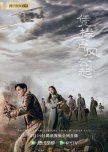
A Storm of Wind and Cloud
14 personnes ont trouvé cette critique utile
Cette critique peut contenir des spoilers
Emotional drama that uses historical facts as a framework
Before I present a rounded reality check, I want to talk about my basic impressions.For this reason, my review is structured as follows:
I. Basis of Interest
II. Expectations
III. Brief synopsis
IV. Impressions
V. Fiction vs. reality
VI. Conclusion
I. Basis of Interest
The drama caught my interest because of two basic factors. First, because of my professional background, I find it exciting to observe how countries deal with their own history in entertainment formats. Especially with a country like China, which is significantly characterized by censorship from the CCP, my own curiosity in terms of historical reappraisal is very high. For this reason, I particularly watch productions from all kinds of countries about the war past, since the genre itself is characterized by an emphasized patriotism and reveals the character of coming to terms with the past.
Secondly, since I would describe myself as a fan of the actor Hu Yi Tian, this production offered me the opportunity to combine my professional interest with my hobby.
II. Expectations
To be honest, I started the Drama with few expectations. Especially after I read some devastating comments on MDL. However, I gave little importance to "the drama promotes communism" (it's a Chinese drama produced for the chinese market, what do you expect?) and "Hu Yi Tian is a bad actor" (I see it differently, but tastes differ). Other comments accusing it of falsifying history made me fear the worst. However, since in my opinion every country has the right to tell its own story, I prepared myself to watch the drama critically. Now, before the unimaginative accusation of being a fangirl comes up again, I'll just say this: even if I'm a fan of an actor, that doesn't mean I like all of his work. However, it encourages me to give a project a chance and make a fair judgment.
III. Brief synopsis
The fictional drama fundamentally focuses on the years between 1937 and 1945, a point in time that not only encompasses the Second Sino-Japanese War aka Asian-pacific war, but is set directly between the 1st and 2nd phases of the Chinese Civil War. The plot focuses on three academic families from two generations and the experiences of fighter pilots. While the academics resist the Japanese assimilation policy to rewrite Chinese history with science, the soldiers experience the war from the air and through the decisions of the Kuomintang national government. The drama thus tells a story of escape, resistance, personal fates, political changes and the trauma of war through a small group of people. They also fall in love, but this is not the focus of the drama. While the characters' experiences are fictional, the series uses scientifically proven historical events as the framework of the narrative. Due to the chronological placement in the area of tension between nationalists and communists, this conflict is directly addressed and provides an answer to the question of why communism was able to grow in China in the first place.
IV. Impressions
The script surprised me in a positive way. The diverse characters are written very entertainingly and make empathizing very easy. I liked all the love stories and the friendships very much. While I'm used to getting a lot of filler episodes in Chinese dramas, I didn't get that impression here. The show kept me very entertained from start to finish. Surprisingly, I found the idea of using Chinese history with the Wu Ding bone to be very appealing on a linguistic level. The physics professor was just entertaining and offered a lot of humor. Being less of a fan of pronounced patriotic attitudes, I was surprised by the comprehensibility of the soldiers' decisions. In addition, I was very enthusiastic about the settings and the music, which completely catapulted me into the action of the drama. Since the series takes many historical facts as background, I always checked the actual scientifically proven background when I had my own uncertainties and therefore took my time watching. Overall, I was very surprised that the Japanese were not drawn more negatively due to the extremely negative occupation past. The theme of communism and nationalism was recurring and only made sense. It would have been odd not to mention this, as it is a defining element of this time. However, as a viewer, I had less the impression that I was to be convinced of the political system than to learn about Chinese history from the Chinese perspective and to learn about its roots. To be honest, after all the negative comments, I was extremely pleasantly surprised at how closely the drama adheres to real facts that are also accepted in Western science. I had absolutely not expected that. But more about that in the next point. One must not forget that the drama was produced as an entertainment element and not as a documentary! Moreover, the series does not offer more or less propaganda than contemporary Chinese series. The only difference is that communism is the theme of the story and does not come through the back door as in fantastic dramas or dramas set in the present. If this bothers you, you should stay away from Chinese dramas completely.
As for the casting, I thought it was very successful from young to old. Although I watched the series as a Hu Yi Tian fan, I have to admit that he could have been a bit more on point in (1) moments where he has to show weakness and (2) clearly emotional moments. Since he is very tall and slim, he seemed very stiff in the uniform. However, nothing has changed in my fan position. I actually think it's very good that he's trying out new genres and growing from them.
V. Fiction vs. Reality
Given that the core of the review is focused on a drama and not a scholarly treatise, I will only address the basic topics that are relevant to the era. If anyone is interested in scientific papers about it, feel free to write to me and I'll give you links for further reading.
Historical background
In 1930, the Central Plains War broke out across China, involving regional commanders who had fought in alliance with the Kuomintang during the Northern Expedition, and the Nanjing government under Chiang. The Chinese Communist Party (CCP) previously fought openly against the Nanjing government after the Shanghai massacre of 1927, and they continued to expand during this civil war. The Kuomintang government in Nanjing decided to focus their efforts on suppressing the Chinese Communists through the Encirclement Campaigns, following the policy of "first internal pacification, then external resistance".
The Second Sino-Japanese War refers to the all-out war waged by the Japanese in China, which began on July 7, 1937 and lasted until September 9, 1945. After the Japanese attack on Pearl Harbor on December 7, 1941, U.S. entry into the war, it was a stage of the Asian-Pacific War and thus part of World War II.
Fiction
All experiences of the characters are fictional. The greatest creative freedom is given to the selflessness of the soldiers. In the post-war analysis, scholars agree that the Chinese armed forces during the war were said to have not only weak combat morale, but also significantly weakened due to the corrupt government that hindered any organization. Thus, the airmen of the drama are not representative of the spirit of the times! In fairness, this situation is actually addressed in the form of a word fight in the series, even if it is only a subordinate clause. As for the scientific theme in the form of archaeologists and linguists, I cannot make a statement. However, there has been resistance to the Japanese assimilation policy in all Japanese-occupied countries. The question is to what degree this was actually successful.
The individual fates of the characters and their personal character developments as well as political perspectives are representative of the zeitgeist of a limited group. (Keyword: preparation for the second phase of the Chinese civil war)
Reality
The drama directly addresses crucial stages of war. The Mukden Incident. The Nanjing Massacre. The Battle of Shanghai and much more. It is not so much the case that the characters are always on the spot, but more learned from the newspapers or from people they know. While all the characters are constantly moving through the country, the historical events give the narrative a chronological framework.
Because of the timing between the first two phases of the Chinese civil war, the following elements are correctly addressed:
- weak, corrupt national government (Kuomintang)
- secret organization of communists at the rural level
- the government's failure to act in the face of the Japanese invasion (failure to declare war, recall of combat units, government's proportional cooperation with Japan, leaving the population alone despite military force, weak government, etc.)
- strengthened resistance and growth of communist ideology within the people in response to the weak government (of course, there were Chinese resistance movements during the war - even if they were not nearly as successful as they wanted to be - and later led directly to civil war immediately after the Second Sino-Japanese War)
- the attitude of the nationalist government to prefer the fight against communists instead of fighting against the Japanese (in the drama, the official armistice between communists and nationalists between 1937 and 1945 is clearly addressed, but also said that the nationalists did not adhere to it - sad fact)
- the support of both the American and British governments is mentioned again and again
- the poor equipment of the Chinese combat troops and the lack of coordination even after official entry into the war is a decisive factor for the growth of communist conviction within patriotic-minded individuals
- the drama does not say at any point that the war was won by the Chinese resistance alone. In fact, it reports on the successes of the Allies and limits the resistance issue to the threat to the small group in view of the Wu Ding bone evaluation.
- in the end, the drama emphasizes that due to the experiences of war, communist ideology was also spread through universities and the communists won the civil war
- in some places the >white terror< is mentioned, which later also became decisive for the history of Taiwan and which since the Taiwanese democratization and reform belongs to the successfully overcome, dark past (at this point I would like to take the opportunity to emphasize how much respect I have for taiwanese development)
- a lot of patriotism and nationalism (resistance = communist attitude)
Thus it can be said that the drama makes use of basic historical facts and processes them superficially. As is typical of the war genre, there is a lot of pathos and love of the fatherland presented. However, this is an element that can be found in worldwide productions about one's own history. The drama will convince you less of the fact that communism is good. In fact, it shows you more how communism was able to gain power.
At this point, it should be emphasized once again that it is a fictional drama and serves the entertainment. If something seems strange to you, I can only encourage you to look critically and check facts.
VI. Conclusion
I liked the drama very much. It knows how to entertain at every point and offers an emotional portrait of people in times of war. Although the tension between communists and nationalists is a recurring theme, it does not dominate the drama. In addition, nationalists are not portrayed as mere villains, but as people with their own beliefs and values. In addition, I found it interesting that survival guilt is also addressed and is often neglected. The insight is definitely exciting and thrilling with you. If you take a critical look at the drama and are open to a fictional show that presents you with limited facets of war, then I can only encourage you to give the drama a chance. In my opinion, it is worth watching.
Cet avis était-il utile?
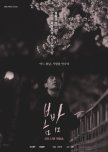
Cette critique peut contenir des spoilers
When I first read the plot I wasn’t interested in this drama at all. Per coincidence I watched the first episode and was instantly hooked. The atmosphere of the show was amazing. Calm, lovely and honest. The leads deal with their very own problems and lived their lives by the rules.Lee Jung In, the female lead, knows what she wants. Her happiness grounds in staying independent. That’s one reason why she dates the selfish bank employee Gi Seok. But when he’s interested to tie the knot after four years different views crash. The characterization of this relationship is very honest and brutally cold told. The motivations of each collide with their happy relationship. When Ji Ho enters the stage Jung In experiences for the first time deep emotions that make no sense at all. Her inner fight is worth seeing and reflects realistic behavior at his best.
Ji Ho is a single father in a conservative society. His role symbolized the tolerance in korean society. It was interesting to see the moral standards of Koreans and how they deal with strange problems. The whole portray of this society was exciting to watch and made me fall in love even more with the characters.
The family members of both symbolizes different point of views and have to deal with problems of their own that aren’t less interesting. I loved everyone besides her dad. He was annoying from the start.
Seeing every episode made me happy. Each one was worth 10 points. I wasn't Ever invested in a drama like this one. I also give rarely 10 points but this drama clearly deserves it. I can just recommend it and will watch it again...soon. It’s a delight!
Cet avis était-il utile?
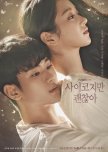
It’s Okay to Not Be Okay
4 personnes ont trouvé cette critique utile
Cette critique peut contenir des spoilers
The best KDrama of 2020
It’s hard to write reviews about shows you love, Thats why I’ll keep it short:What did I like about the show?
- amazing cinematography (reality & book illustrations)
- an extraordinary Cast (the casting director deserves a big raise)
- lovely characters (especially Sang Tae & Dr. Oh)
- versatile characters and their coping with own past
- well introduced patient stories
- acceptance of mental diseases
- a convincing healing story
- an exciting thriller aspect (let me speculate a lot)
- the unpatriotic dealing & respect for Korean War veterans
- the critics on society
- the symbolism of the show
- the call for acceptance
- the bonding of the brothers (the intense showdown gave me goosebumps & tears)
- perfect mix of humor, tragedy, family story, healing story & thriller
- the morals of each story inside the story
- the bonding of all characters (especially the brothers)
- the fact that you couldn’t dislike any character at all (in my case even the bad person)
- the music
- the conversations
- the slowly blooming love story
- the symbosis of a strong script & detailed director accomplishments
- the nature scenes
- the fine line between too less and too much (it felt realistic)
- the feeling to be completely satisfied after finishing each episode
What did I dislike about the show?
- nothing (that’s why I needed to rate 10/10)
- the feeling that I reached the peek of KDramaland of 2020 (it’s a strong year - who am I kidding?)
I can recommend the show whole heartily.
[MY ADVICE - SPOILER WARNING]
If you have issues with the fl think about her experiences in her most important years. Don’t believe the diagnosis of the talking people. It’s their assumption and not a medical fact. Try to understand the reasons for acting the way they do of every character and enjoy the mystical ride! Have fun, dear! ;)
Cet avis était-il utile?
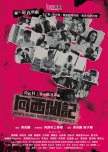
Hong Kong West Side Stories
4 personnes ont trouvé cette critique utile
Cette critique peut contenir des spoilers
The short stories are really entertaining and have different themes. These are always controversial and have a bitter taste or ending. The actors are mixed with famous celebrities from Malaysia or the US as well and not well known in western countries. But I liked all of them.My favorite moments were the breaking of the forth wall and self-talks.
I can recommend the drama for fans of heavy content or OCN watchers. It’s something new and please don’t expect to like the main leads. Their behavior isn’t very nice...
My favorite storyline was with the actor Ka Ki Shem. He was so cute as Lucas aka part-time boyfriend.
Cet avis était-il utile?
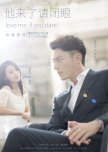
Interesting Crime Drama with a mediocre end.
LoveMeIfYouDare is a psychological crime drama with great visuals. The effects in the flashbacks or in his Fantasy are quite individual. I like the idea how he Analyse the mind of a serial killer.The lead couple is lovable and The romance is sweet but not in the center of the show. My favorite was his best friend as funny sidekick. The other actors are partly terrible. Especially the while people got real bad acting.
The Story is entertaining. First you’re surprised about the development but you reach a point where it’s obvious where the story is going. The case is exciting and makes you crave for information about the male lead.
This CDrama has a perfect start, a fulminant middle and a weak end.
Cet avis était-il utile?
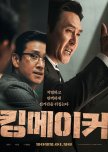
Kingmaker: The Fox of the Election
0 personnes ont trouvé cette critique utile
Brilliant semi-historical movie about ethical questions
Important film about the ethical dilemma of modern times whether any unjust methods can be justified to achieve one’s goal if the person believes it is desirable. If so, where would be the permissible range?Set in the 1960s-70s, “Kingmaker” revolves around an opposition party politician who dreams of becoming president and his excellent strategist. It was motivated by mysterious election strategist Eom Chang-rok, who worked for former President Kim Dae-jung, who became president in 1998 in the culmination of a decadeslong political career. As far as I understood it is the lead actor Sol Kyung Gu responsible for the change of names - because of the pressure in portraying an actual famous person and its habits he proposed to the director to use imagined names instead of true personalities. Of course, the synopsis is based on real life events but the portrayal and its characteristics are based on the interpretation of the actors. Personally I liked the small details that gave away hints for KDJ again and again. The injured leg should be the most obvious one.
Let’s talk about the movie:
I really enjoyed the whole ride into partially true history. When you’re in Korea and ask the people for their favorite President it’s mostly either Park Chung Hee or Kim Dae Jung (from my personal experience). It all depends where your political compass is headed. Because I also vibe with KDJ I was eager to watch the movie and had high expectations, especially when I got to know the whole crew. I wasn’t disappointed because the acting is extraordinary brilliant - fitting to the senior actors Stils. They captivated me all along and made the time travel a unique experience. However, I also enjoyed the creative intermissions like “aged black/white tv reports” or two masqueraded political cabaretist which gave you a time stamp within the story. The intrigues, mind games and versatile tricks to win elections are impressive and scary at the same time. So my fascination really pulled the strings and left me in awe with the story. Not really good but also not really bad characters - the truth is in the middle. But the overall question about what’s right or wrong to reach your goals build on your ideals can only be answered by the viewer and it’s quiet noticeable how modern is this philosophical question. Overall, I’m impressed and had fun with the movie. I’d wish we would get more movie portrayals about the Three Kim Era instead of the republican anti-heroes.
Cet avis était-il utile?
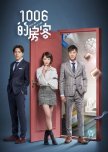
Cette critique peut contenir des spoilers
Before watching I’ve never heard of this show. I found it coincidentally and decided to give it a shot because of the casting. Lego Lee and Nikki Hsieh were perfect together in „Love @ Seventeen“. Therefore I was happy to see them reunited.The story is great and hooked me from the start. I admired all 26 episodes. The whole plot is really well written. It’s Funny from the start to see how the leafs cope with their strange situation and their 4 months gap. The Dialogs are irresistible. The chemistry between both us perfect. I loved this whole love hate dynamic they got going on all the time.
Then we got two murder cases in the story. The first one is mediocre and isn’t that important for the story at first. Honestly I was totally surprised about the culprit and his development. Nice writing!
The second case is really important and brings the leads together to solve it. This one was pretty obvious from the start. Would I’ve been watched because of the crime element I would’ve been disappointed. But everything else is perfect.
I love the idea to create a villain in his own person 4 months ago. That was funny. Also his reactions when he got ne memories uploaded. The talks with his best friend are hilarious too. So much fun!
Our sweet rookie journalist is a sweetheart with a lots of trust issues. At times it’s a little annoying to see. On the other hand it’s logical. He knows the future but she is from the past and needs to believe everything her enemy tells her. I can understand that this situation isn’t easy.
The whole show was entertaining from the start and I can just highly recommend it. It’s worth seeing!
BTW I guess Subway was the main After finishing the drama I needed to eat at my local subway the same sandwich as the leads and it was quite tasty. Nice commercials!
Cet avis était-il utile?
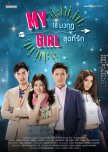
Funny show with lots of heart
I write this review because I often find comparisons to the korean parent story. I think that’s unnecessary because this Thai drama stands for himself.The introduction in the series is really funny and soft. We get to know the main leads and their intentions. The actors are perfect for their roles and got a great chemistry.
The storyline is nice and better as I first thought. All dynamics are fun to watch. The only annoying part was the ballerina. If you watch the show you learn really fast why. The humor and the sad scenes are convincing and exciting to watch.
The music is great and fulfills high standards.
I really liked this drama and can recommend it without a doubt.
Cet avis était-il utile?

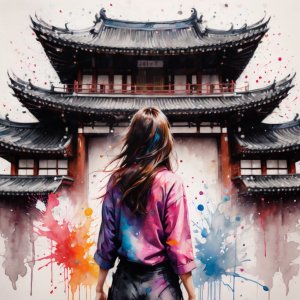
 1
1





















